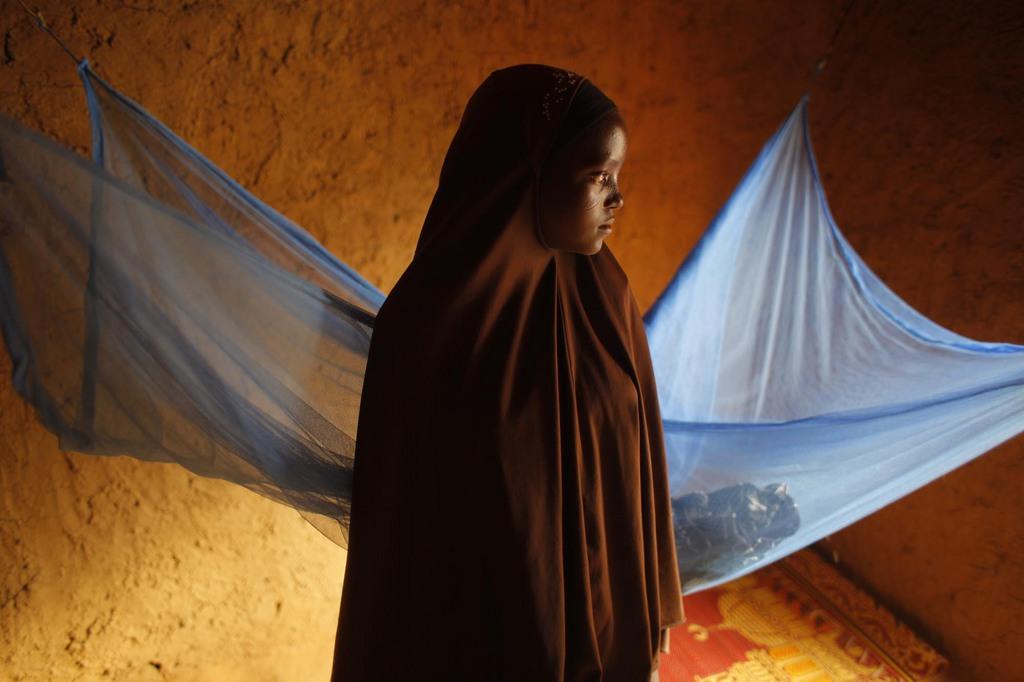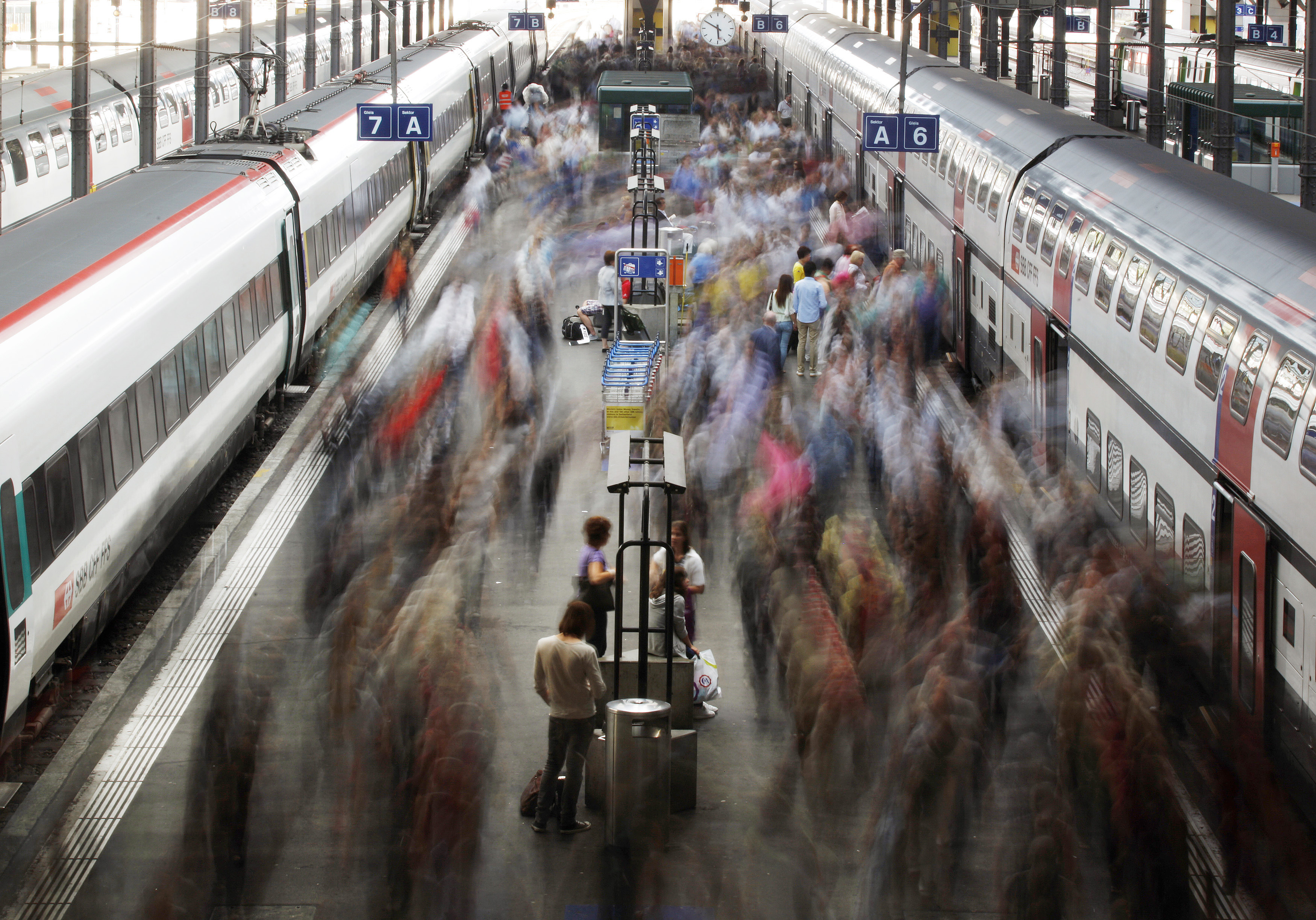Why the ‘overforeignisation’ debate continues

The Swiss fear of having too many foreigners – overforeignisation – was at its peak in the 1960s and 1970s. But, as historian Damir Skenderovic says, two anti-immigration nationwide votes in February and November this year show that the issue has never really gone away.
Earlier this year voters approved a rightwing Swiss People’s Party initiative to “stop mass immigration” from the European Union.
On November 30, the population will be casting ballots on the Ecopop initiativeExternal link requiring that net immigration should not exceed 0.2 % of the population over a three-year average and that 10% of development aid should be spent on promoting birth control in developing countries.

More
Ecopop campaign takes to the streets
Ecologists are behind the latest initiative. They have firmly rejected allegations of an overforeignisation agenda, saying their aims are contributing to a sustainable quality of life in Switzerland – stopping pressures on living areas, traffic and the environment by stemming immigration – and helping people in disadvantaged regions of the world.
SkenderovicExternal link, a professor of contemporary history at the University of Fribourg who has written on the radical rightExternal link, migration and identity politics, argues that the people’s initiative is nevertheless once again making foreigners the scapegoat.
swissinfo.ch: We keep hearing the word, but overforeignisation really had its high point in the 1960s and 1970s.
Damir Skenderovic: Yes, but the discussion has never really ended. Overforeignisation is a scenario, a discourse that insinuates that there is a threat, a danger, and that there should be some kind of protection. In the term “Überfremdung” [overforeignisation], there is the word “über”: too much, which possibly includes both quantitative and qualitative aspects – although it is left open for everyone to answer the question of how much.
And there is the word “fremd”: the stranger, the foreigner, who doesn’t belong here, who is supposedly a stranger to one’s own world. This is the idea that there is permanently a threat coming from outside, from the ‘other’. It also corresponds to a kind of negative perception of identity, which means that demarcation from others helps to construct one’s own identity: ‘Swissness’ is perceived as the counterpart to ‘non-Swissness’.

More
I like Switzerland – but does it like me?
swissinfo.ch: So fear lies behind it?
D.S.: Indeed, there is fear behind it. Politics of fear intends to evoke the feeling that one has to defend oneself. It works with emotions and fantasies rather than reason and facts. Since the 1990s, politics of fear have heavily influenced a number of political campaigns and decisions in Switzerland, particularly in terms of immigration or foreign policy.
swissinfo.ch: Why are discussions about the concept coming up in relation to the Ecopop initiative?
D.S.: The initiative is calling for less immigration. This means first of all that two categories of people are set: the “nationals” and the “non-nationals”, the Swiss and the non-Swiss, those who have the right to stay and those who have to leave or cannot enter the country. Second, the initiative refers to issues of ecology, environment, and growth.
Swiss concept: referring to the overfilled residential areas and transport means and the resulting environmental and psychological pressures.
It tries to work on a feeling that some have called “Dichtestress” (density stress), a term that does not exist in English and that raises eyebrows for those who have lived in New York or Japan.
However, the initiative misses the point. Since ecology and the environment are transnational issues, they do not stop at the borders of Switzerland. So the initiative is going back to a notion of nation state which does not make sense in the area of ecology. Also, the question of growth, in terms of economy or population, is of global scale and therefore the answer cannot be given at the national level. Moreover, there are certain issues addressed, such as transport means, high rents and construction, for which someone has to take the blame. I think this is clearly scapegoat politics.
PLACEHOLDERswissinfo.ch: So it has got an overforeignisation tone?
D.S.: The debate on overpopulation, on having too many people, on ecological stress and environmental pressure, has a long history and had one of its first moments in the 1960s and 1970s. One path of the debate is linked to specific notions of nation and nationalism; overpopulation is seen within national borders, is linked to the nation-state. In this tradition – to which scientists, economists and demographers have contributed and of which this initiative is an example – overpopulation is connected to immigration, merging the notions of overforeignisation and overpopulation.
swissinfo.ch: Today’s Switzerland is different to the 1970s. Why is overforeignisation being debated when everything is going so well in the country?
D.S.: In social research there are various explanations as to why someone is driven by fear in his or her political decisions or supports a political party that constantly talks about all kinds of danger and threats. For example, people feel that everything is okay now, but they fear it could all change tomorrow, producing negative effects for them. Or there is what is called “welfare chauvinism”, saying that because everything is going well, it is necessary to protect welfare, the social state and other national achievements to guarantee one’s own well-being. Thus it becomes essential to ensure that the Swiss have more rights than others.
Finally, it is known from history that parts of the middle class, even when things are going well with good jobs, a good education, and a stable family life, are afraid that it could all be worse tomorrow, that they might lose their status. So they vote for parties that promise them social status quo and national protection.
Overforeignisation timeline
1900: first appearance in a booklet launching primarily a debate among intellectuals.
Around WWI: debate taken up by larger sections of the population, also institutions which felt they needed to control immigration. In 1917 police dealing with foreigners centralised.
Post WWI: the debate increases, even if there was a strong drop in foreigners. Overforeignisation becomes an official term, appearing in laws. But still not clearly defined: is it how many people, which people, economic, cultural or political? Also links to anti-Semitism.
Post WWII: so-called guest workers arrive from southern Europe, so overforeignisation debate centres on work and economic issues, but also keeps its cultural overtone. Small political movement called National Action (now the Swiss Democrats) formed in 1961. In parallel, a federal commission looks into whether Switzerland is overforeignised.
1967: James Schwarzenbach, key figure in the debate, elected to national parliament, propelling National Action onto the national arena. Switzerland first country in Europe to have this kind of right-wing populist party.
1970: Schwarzenbach’s initiative on overforeignisation narrowly defeated at ballot box (46% yes). A controversial, mobilising moment in Swiss history. The word continued to be used in the 1970s. Several more initiatives launched in 70s and 80s, including in 1974 one on overforeignisation and overpopulation (rejected).
1990s: an established political force, the Swiss People’s Party takes over overforeignisation agenda, the word returns into circulation, having become unpopular due to its exclusionist connotations. The People’s Party remains the strongest Swiss political force today.
(Source: Damir Skenderovic)

In compliance with the JTI standards
More: SWI swissinfo.ch certified by the Journalism Trust Initiative











You can find an overview of ongoing debates with our journalists here . Please join us!
If you want to start a conversation about a topic raised in this article or want to report factual errors, email us at english@swissinfo.ch.